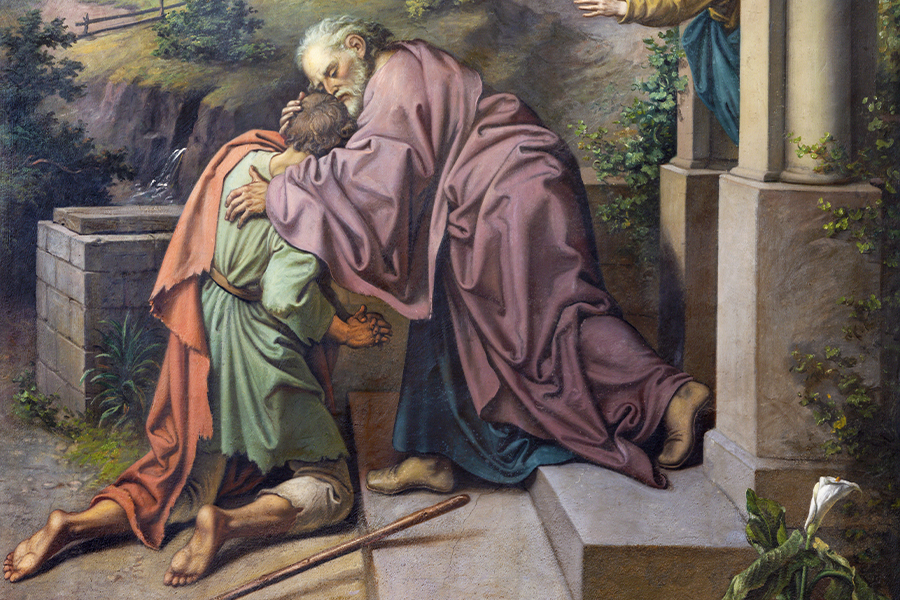
4th Sunday Lent: Merciful Father
03-20-2022Weekly ReflectionFr. Bing ColasitoLk 15:1-3, 11-32
The Gospel today is about the Parable of the Prodigal Son. In the parable, a father had two sons, and the younger claims his inheritance in advance. But know that in Jewish custom, the first-born by right inherits most of the wealth.
The older son - based on the cultural standard at that time pictures an ideal son. He is obedient and works hard even if he is guaranteed a double share of the inheritance. But he shall acknowledge the first son by giving him a double portion of all that he owns; for he is the first-fruits of his strength, the right of the first-born is his. (Dt. 21:17).
The action of the younger son appears selfish and insulting to the father. When he asks for an early distribution of inheritance, he insults and disrespects his honor and authority. His desire for independence dishonors and neglects the needs of the aging father.
After receiving his share, he proceeds to squander everything on a life of debauchery in another country. The parable shows a sad reality; from the same root, the two sons grew to be different in their values and the direction of their life. Many families, like soil, from the same dirt, grow fruits of every kind.
Most parents try their best to raise good and God-fearing children. Please, to these parents: Do your very best and leave the rest to God. A wise priest once said: No matter what or who the children will turn out to be, keepthe mind and the spirit of the loving father in the parable, and you will have no regrets. Do not fault parents for loving much and loving more.
A reflection of the extraordinary mercy of God the father portrays in the parable shows how his compassion moves the prodigal son to conversions. This story has become a classic model of a change of heart. The heart journeys from the dryness of the spirit caused by a wasteful life; to the joy of the soul forgiven and restored into the father’s favor. Like the joy of the household in the parable: I say to you that there shall be joy like this in Heaven over one sinner who returns home, more than over ninety-nine righteous ones who do not need a homecoming (Lk. 15:7).
The parable shows the father never losing hope and never stops loving the younger son and believing in his inner goodness. A good reminder to all of us, never stop trusting that anyone can change/convert, that goodness begets goodness, and that love begets love; in His own time. Yes! With God, all things are possible: In His time - He makes all things beautiful, in His time.
The parable also presents several elements of loving. The first element of love is respect. By asking for his inheritance early, the younger son disrespected the honor of the patriarch. The second is trust. The son distrusts the generosity of the father by advancing his share. And the last element of love is gratitude. The ungrateful son gets his share of the wealth, leaves, and squanders everything, unmindful of the feeling of hurt he leaves and his indifference to the well-being of his father.
The love of the father shows us what real love is. First, he still respects the son when he welcomes him back with much love and compassion. And even orders his servants to do likewise. Second, he welcomes him back, restores his trust and confidence, and embraces him back to the fold. And third, in an unbelievable act displays gratitude to God for the return of the lost son and gives a big feast serving the fattened calf as a thanksgiving because his son is back. Because the brother was dead and had come to life, he was lost and now found.
It is also a parable of hope. Jesus understands our weaknesses, reluctance, and hesitation to repent because of our pride, insecurity, or hopelessness. He never gives up. Like the loving Father, He waits for us and welcomes us back without conditions, ready to show mercy; and restore us to our dignity of being His sons and daughters. Our God is loving, merciful, and ever compassionate.
BACK TO LIST